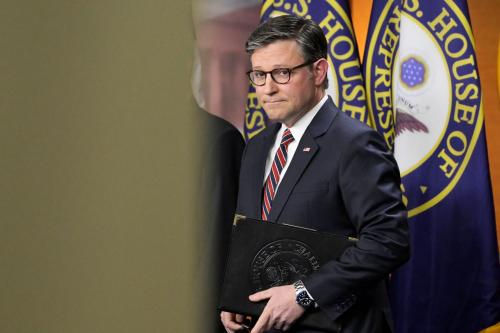With President Obama’s expected unveiling of a detailed deficit reduction plan this upcoming week, aimed to influence and cajole the super committee, which must report with its proposal by November 23, the debate about how to reduce our huge fiscal overhang is about to get intense again.
President Obama can be expected to put forth a balanced approach for cutting $1.5 trillion in government spending, with a mix of tax increases and spending cuts in most discretionary parts of the government budget as well as some aspects of Medicaid and Medicare. Most likely, any tax increases the president proposes, relative to the current Bush-era tax rates due to expire at the end of next year, will focus on just higher-income earners.
This will be a reasonable plan. But if the super committee goes a different direction, and its 6 Republicans adamantly oppose any talk of any tax increases whatsoever (or, more accurately, any suggestion that Bush tax cuts not be extended), there is a better approach for Democrats than to simply vote it down and allow sequestration to kick in. They should take whatever package of balanced spending cuts is possible to achieve this year, approve it, and then let the 2012 campaign be a referendum on what to do next.
Sequestration would be a bad idea because it would devastate national security as well as key domestic investments funded within the so-called domestic discretionary accounts. Both these areas of spending would be targeted for disproportionate cuts if the super committee is unable to forge a deal or if Congress is unwilling to pass whatever deal it comes up with. Among other things, defense cuts could then approach $1 trillion over ten years with precipitous cuts beginning in 2013. This would require the nation to make unpalatable and indeed unwise choices, like whether to maintain its strong defenses in the Persian Gulf or the Western Pacific Ocean, because it will no longer be possible to do both well, even as Iran intimidates and China rises.
Many Democrats, myself included, would find it unreasonable of Republicans to refuse to include any revenue increases in a budget deal this fall. Given that tax rates are historically quite low today – lower than at most periods of Reagan’s presidency, lower than during Clinton’s time in office – there is a very reasonable case to go back to 1990s rates until we can reform the tax code (ideally reducing exemptions in the process, and possibly adding an energy or a value-added consumption tax too, thereby permitting lower income tax rates to go with increased revenues). Globalization, automation, and other innovation have continued to help the wealthy of this country disproportionately and it is only right that upper-income Americans pay a bit more in taxes.
But if the GOP refuses this argument in the fall, smart political tactics would not be to have Democrats fall on their swords and block a deal. Not only would the resulting sequestration jeopardize crucial federal programs and investments, but the resulting standoff would sour Americans even more on their current government – and jeopardize the economy even more, in both the short term and the long term.
The better strategy would pocket whatever balanced deal is available, including some entitlement reductions and even some social security reforms. Everyone could then acknowledge that more deficit reduction work is needed to be done and the two parties could fashion their proposals for next steps and ask the voters to help the nation choose via the 2012 elections. Democrats would presumably suggest that some tax increases would be preferable to further deep cuts in discretionary accounts or big reductions in entitlements. Republicans would likely continue to oppose any tax increases and perhaps bring out a modified version of the Ryan Plan as their vision for the future. Ideally, both parties would also lay out ideas on tax reform, not just on income tax rates.
There is no reason such an approach should work strongly for or against either party. It would be a straightforward choice for the American people, easy enough to explain and campaign on, honest and constructive in its character, and in the best traditions of democracy. And any politician truly confident in his or her views on fiscal policy, national investments and taxes should be unafraid to ask the voter for a verdict.
The Brookings Institution is committed to quality, independence, and impact.
We are supported by a diverse array of funders. In line with our values and policies, each Brookings publication represents the sole views of its author(s).



Commentary
Op-edDon’t Let the Super Committee Fail
September 17, 2011